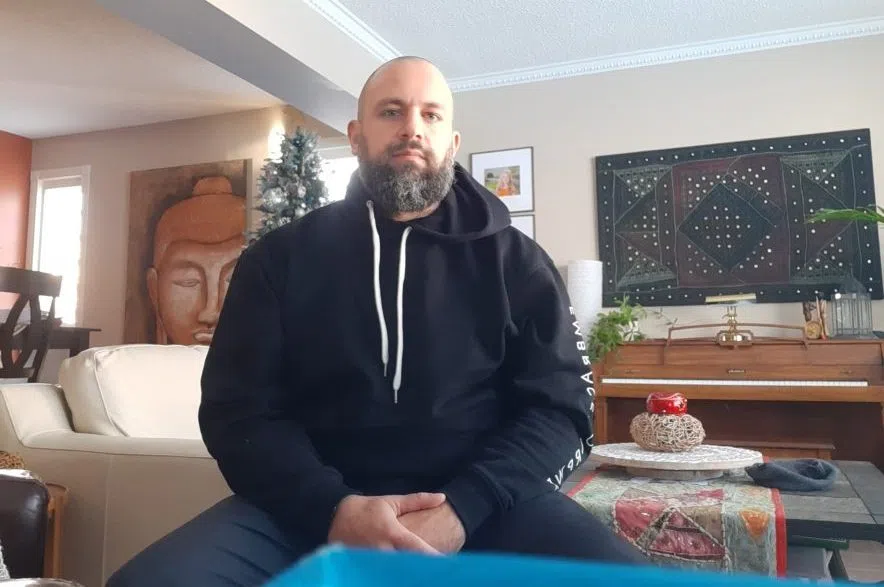A Regina man of Syrian descent said there are still a “million” question marks about what happens next in his parent’s home country following the toppling of President Bashar al-Assad.
Noor Mitri is the son of Syrian immigrants. Mitri was born in Kuwait and spent half of his life living in Canada and the other half living in the Middle East.
Mitri said there remains the possibility for a quagmire if sectarianism can’t be quelled.
“Right now, with the fall of Bashar al-Assad, (I’m feeling) not really a sentiment for the fall of Bashar al-Assad, but rather a sentiment of understanding the whole region,” he said.
“For example, how will Syria gain its sovereignty again? These are worries, and these are justified worries,” Mitri said.
Read More:
- Saskatoon cop coaches mother as she gives birth inside vehicle
- The best butter tarts in Saskatchewan: A taste of tradition
- Syrian refugees mark one year of being in Regina
He referenced the Israeli bombardment and capture of southern areas of Syria following the collapse of the al-Assad regime, pushing even further past the Golan Heights area which Israel annexed in 2019.
Mitri said it’s too early to tell how exactly things will play out in the post-Assad era.
“The only hope is that Syrians can somehow find a way to find unity and at the very least, fight this sectarianism or separation or different interests to at least allow the safety of the Syrian mosaic of population,” he said.
Mitri said he’s been committed to studying the conflict since the civil war broke out in 2011.
He said the civil war had its beginnings with a revolt against the al-Assad government, demanding an end to the family’s decades-long rule, as well as against corruption and political repression.
However, Mitri said it morphed into a more complicated situation.
“The reality of the matter is that it was very quickly overtaken by many international forces that brought in a horde of different weaponry to be tested within the Syrian land and the Syrian geography,” Mitri said.
“And it was bloodshed upon bloodshed. From day one, it was ugly from all sides.”
Countries like the United States, Israel, Qatar, the United Arab Emirates, Turkey, Saudia Arabia, Russia, Iran, Italy, France and Canada had become involved in the conflict throughout the years.
Mitri hasn’t been able to visit his homeland since 2009, two years before the war broke out.
He said his family in Syria is safe.
Bashar al-Assad was in power from 2000 until 2024 when opposition forces overtook the capital city of Damascus.
On Monday, Israel launched several strikes on Syria’s Latakia port as well as on weapons facilities and air defence systems belonging to the former regime, claiming it didn’t want them accessed by extremists.
Mitri said this could impact the next government’s ability to maintain its sovereignty.
He expressed some fears about Syria meeting the same fate as Libya, which has experienced political instability and violence since the 2011 NATO-led overthrow of Muammar Gaddafi.
“Whatever new power is emerging, it has to now accommodate itself with a complete destruction of the Syrian army and all its defence capabilities,” he said.
Local reaction: Surprised and happy
Houssam Farouq is a Canadian-Egyptian man who volunteered to help settle Syrian refugees in Regina. The news of al-Assad’s overthrow came as a shock.
“I was so surprised and I was so happy at the same time,” he said. “My friends were contacting me to see what was going on, to check the news and (to) keep seeing the videos everywhere.”
Farouq said many of his friends lost family to the Assad regime and some have lost contact with them completely.
“No doubt that this is the time that people will celebrate after all these years of being oppressed,” Farouq said.
Farouq said many of the Syrians he knew displayed a lot of patience over the years.
“I hope that there is a way that they can have a good life in the coming days and coming years. I don’t know how this can take place, but everybody should think about that,” Farouq said.







